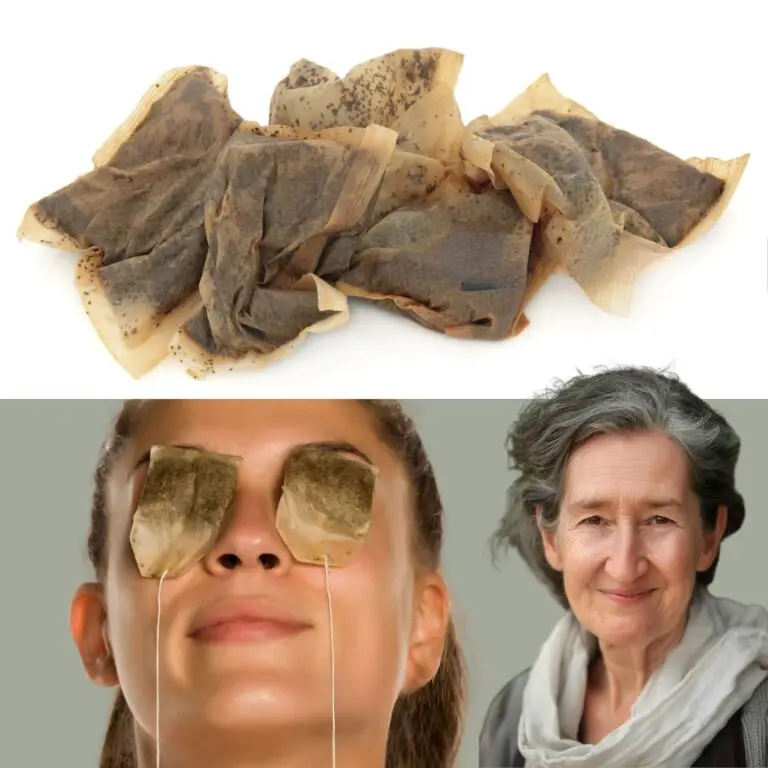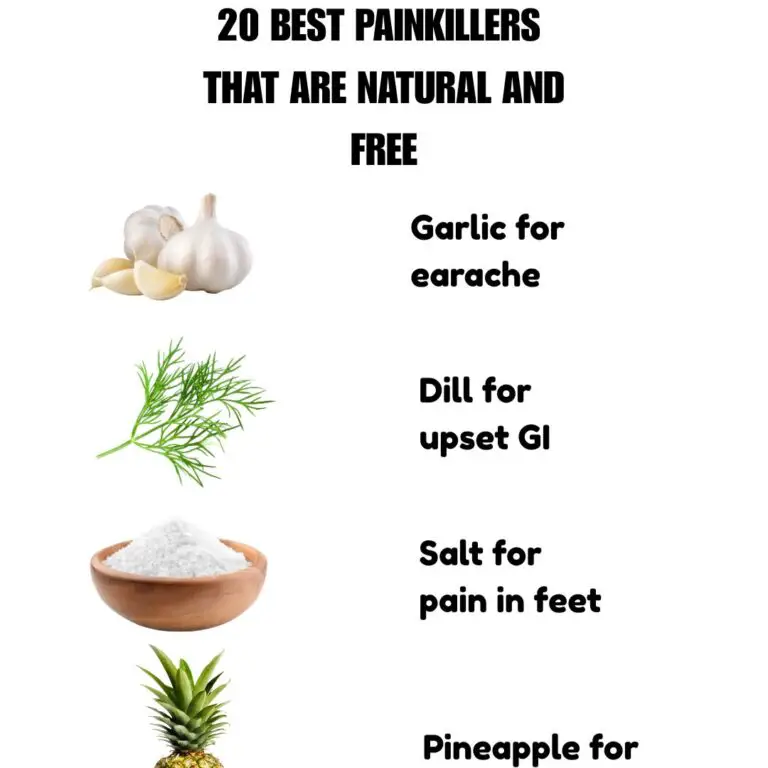Frozen Lemons Say “Goodbye!” to Diabetes, Tumors, and Obesity: A Deliciously Powerful Recipe
Introduction
Imagine holding a simple yellow fruit that packs the power to fight obesity, lower blood sugar levels, and even slow tumor growth. Sounds too good to be true? Meet the frozen lemon — an unsung superfood that’s making a comeback in holistic wellness circles and health-conscious kitchens alike.
More than just a tangy addition to your water, frozen lemons may hold medicinal properties so potent that many nutritionists, naturopaths, and researchers are now urging people to rethink how they use this citrus powerhouse. Unlike traditional uses that focus on lemon juice alone, freezing the entire lemon — peel, pith, and all — unlocks an entire suite of benefits, many of which are lost in conventional preparation.
So whether you’re battling chronic health issues, looking to boost your immune system, or just want to shed a few pounds naturally, frozen lemons might be your next kitchen hero. In this blog, you’ll discover how to make and use frozen lemons, why they work, what science says about their benefits, and how you can incorporate them into your daily routine effortlessly.
Let’s peel back the truth.
Why You’ll Love This “Recipe” for Health
This isn’t your average lemon water detox tip. Freezing whole lemons transforms how you access the fruit’s full spectrum of nutrients. While most people discard the peel — arguably the healthiest part — freezing lemons makes them grater-friendly and more versatile than ever.
Here’s why you’ll absolutely love using frozen lemons:
- Maximized Nutrients: The peel is packed with polyphenols, flavonoids, and limonoids that exhibit anti-tumor and anti-diabetic effects. According to Harvard Health, citrus peels are rich in beneficial plant compounds that support immunity and reduce inflammation.
- Incredibly Simple: No fancy equipment or prep — just a freezer and a grater.
- Economical & Waste-Free: Use the whole fruit, reducing waste and maximizing value.
- Tastes Great: Adds a zingy brightness to drinks, dishes, and even desserts.
- Supports Weight Loss: Rich in pectin and detoxifying compounds that promote satiety and fat metabolism. A NIH study highlights the anti-obesity effects of lemon polyphenols in animal models.
- Improves Digestion: Stimulates bile flow and enzyme production, enhancing gut health.
Ingredients
To start incorporating frozen lemons into your diet, you’ll only need one ingredient:
- Organic Lemons (as many as you like)
Pro Tip: Always go organic. Non-organic lemons are typically waxed and treated with pesticides that can concentrate in the peel. You can learn more about the value of the peel in our article on The Truth About Citrus Peels: Hidden Health Benefits.
Necessary Tools
While the concept is simple, having the right tools ensures a smooth and effective prep process:
- Freezer-Safe Bag or Container
- Sharp Grater or Microplane
- Cutting Board and Knife (optional)
- Glass Jar (for storing grated lemon)
- High-Speed Blender (optional for smoothies)
Ingredient Swaps and Additions
Frozen lemons are versatile, and you can enhance their impact or adjust them to your taste and needs:
Swaps:
- Meyer Lemons – Sweeter and less tart, perfect for desserts or milder dishes.
- Limes – Provide similar benefits with a slightly different flavor profile.
- Citrus Mix – Combine oranges, limes, and lemons for a broader nutrient blend.
Additions:
- Fresh Ginger – For added anti-inflammatory and digestive benefits. Try our Detox Ginger-Turmeric Shots for a powerful morning ritual.
- Turmeric Root – Pairs well with lemon and offers powerful antioxidant properties.
- Cayenne Pepper – Boosts metabolism when added to lemon-based drinks.
Step-by-Step Instructions
Step 1: Wash and Dry
- Scrub your lemons thoroughly to remove surface dirt.
- Dry completely with a towel to prevent ice crystals.
Step 2: Freeze Whole
- Place lemons into a freezer-safe container or zip bag.
- Freeze for at least 8 hours or overnight.
Step 3: Grate When Ready
- Once frozen, take out a lemon and grate it directly (peel, pulp, and all).
- Store unused grated lemon in an airtight glass container in the fridge (up to 7 days) or freezer (up to 1 month).
Step 4: Add to Anything!
Sprinkle your frozen lemon zest into:
- Smoothies
- Teas
- Oatmeal
- Salad dressings
- Baked goods
- Yogurt
- Marinades
Tip: A tablespoon per serving is a great place to start.
Pro Tips for Success
- Use High-Quality Organic Lemons: The peel is the star — you don’t want it tainted by chemicals.
- Grate in Batches: Pre-grate several lemons and store in small portions to save time.
- Mix with Superfoods: Combine with chia seeds, flax, or honey for added wellness benefits.
- Don’t Thaw Before Grating: A thawed lemon gets mushy and is harder to handle.
- Use Silicone Trays: Freeze grated lemon in silicone ice cube trays for convenient portions.
Serving Suggestions
Here are some delicious and functional ways to integrate frozen lemon into your meals:
- Morning Elixir: Mix a tablespoon of grated lemon with warm water, honey, and turmeric.
- Green Smoothie Booster: Add frozen lemon zest to green smoothies with spinach and avocado.
- Flavor Enhancer: Use on top of grilled fish, tofu, or roasted veggies.
- Immune-Boosting Tea: Combine with fresh ginger and a splash of apple cider vinegar.
- Lemon Ice Cubes: Freeze with mint for refreshing water add-ins.
Need more health-forward recipes? See Natural Remedies for Inflammation You Can Make in Your Kitchen for holistic ideas.
Storing and Reheating
Storing:
- Whole Lemons: Keep frozen for up to 6 months.
- Grated Lemon: Store in an airtight container in the refrigerator for up to 7 days, or freeze in ice cube trays for long-term storage.
Reheating:
- No reheating necessary — use grated directly from the freezer for optimal taste and nutrition.
Nutritional Information (Per Tablespoon of Grated Frozen Lemon)
- Calories: 4 kcal
- Vitamin C: 12% DV
- Fiber: 0.5g
- Sugar: 0.2g
- Potassium: 15mg
- Polyphenols: High
- Antioxidants: High
- Citric Acid: Supports alkalinity
Curious about the flavonoids in lemon peel and how they benefit your heart and immune system? The Cleveland Clinic breaks it down in detail.
FAQs
1. Can I freeze non-organic lemons?
Technically yes, but it’s not recommended. Non-organic peels often contain pesticide residues.
2. Will freezing lemons destroy nutrients?
No — freezing helps preserve vitamin C and makes nutrients in the peel more accessible.
3. How many times a day can I consume frozen lemon?
1-2 tablespoons daily is sufficient for health benefits.
4. Can frozen lemon really help fight tumors and diabetes?
While it’s not a cure, studies suggest compounds in lemon peel like limonene and hesperidin can reduce oxidative stress and inflammation — both major contributors to tumors and insulin resistance. Read more from the World Cancer Research Fund about diet and cancer prevention.
5. What’s the best time to consume it?
First thing in the morning is ideal for detoxification and metabolism boost, but it’s safe any time of day. According to the American Diabetes Association, citrus fruits are a safe and beneficial part of a diabetic diet.
Conclusion
Frozen lemons are far more than a kitchen hack — they are a lifestyle upgrade. Affordable, easy to use, and backed by compelling research, this citrus trick can become your secret weapon in the fight against diabetes, obesity, and even certain types of tumors.
By using the entire lemon — peel and all — you’re not only getting more nutrients, you’re also embracing a sustainable, holistic approach to wellness.
Ready to zest up your life? Try freezing a few lemons tonight. Your body will thank you tomorrow.







